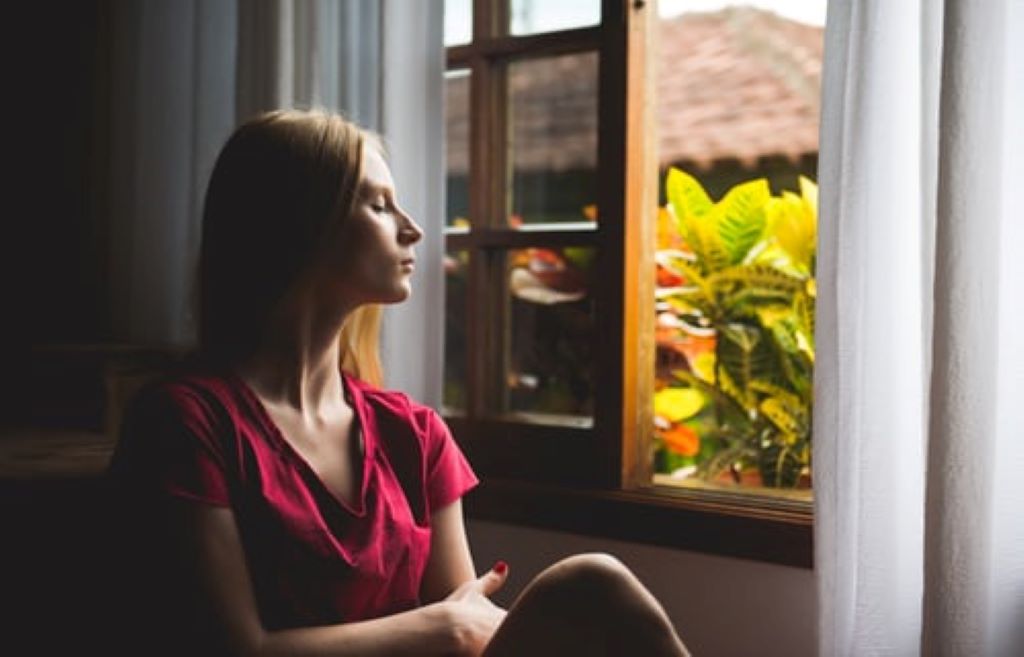How to protect your mental health when you’re self isolating alone

COVID-19 changed the face of 2020 and continues to spread across the country, meaning we now find ourselves in restrictive lockdown once more.
As we know, these drastic but necessary enforcements have been put in place to protect us all - most importantly those with pre-existing health conditions - but have meant that many people across the UK are now facing the foreseeable future in isolation, completely alone.
Though we are still, thankfully, allowed outside to take one form of exercise per day, the stripping away of personal freedom will take its toll on all of us, regardless of whether we are living alone or not. But for those of us who don’t have flatmates, family members or partners to bicker over the TV remote with, our mental health could become particularly vulnerable during this time.
According to both recent and historical research, the psychological impact of quarantining can be significant. As humans, we are social creatures - even those of us who’d consider ourselves happy in our own company - so it’s understandable that cutting ourselves off from human contact for an extended period of time may lead to post traumatic stress symptoms or erratic behaviour. One study of hospital staff who were quarantined for just 9 days during the SARS outbreak reported experiencing increased levels of lethargy, poor concentration, insomnia and anxiety.
Though it might not be possible to eradicate all negative thought patterns during these exceptional circumstances, there are actions we can take to at the very least reduce them.
Read on for tips on the best way to protect your mental health if you’re riding this lockdown train solo.
Reduce the stressors
A Lancet journal on the impact of the Coronavirus quarantine published in March predicted that the greatest stressors for those alone were likely to be the duration, fears of infection, along with frustration and boredom.
Not knowing how long this ‘new normal’ way of life will go on for is bound to hit our mental health hard, making us more susceptible to feelings of listlessness. Ensuring you keep up some kind of routine is going to be particularly important right now - even if you’re not working. Though it might be tempting to get up late each morning and head straight for Netflix, our future selves will thank us for enforcing some level of discipline. Try to get into a sleep routine and ensure you get some fresh air every day - even if it’s just by sticking your head out of the window.
If you find yourself scrolling on social media or checking the news more often than you would like, incorporating some new pastimes that don’t involve using a screen will help relieve the temptation. Both, though informative, remain two of the greatest sources of confusion and fear at the moment, so limiting your access to them will help keep your mental defences in place.
Keep talking
Catching up with friends and family will be crucial to all of us during this time, so make sure you have plenty of calls scheduled throughout your week to keep you going. Again, whilst the unprecedented nature of the current circumstances makes it difficult not to talk about them, try to avoid spending all your time discussing all things Coronavirus. Where possible, schedule things to do together over a video call, such as a quiz or eating a meal and if you’re close to someone else in total isolation, agree to be each other’s regular check in buddy.
Or, if you need, take a break
Of course, all this time alone means most of our average screen times have skyrocketed - which is really saying something. Give yourself permission to not answer the phone every time someone rings (which is likely to be several times a day right now) if you don’t feel like having a conversation or are enjoying being engaged with something else. Equally, if someone you’re close leaves you feeling depleted with all their negative talk about the situation, step away for a while.
Something that can help with all of the above is finding certain activities that don’t involve screens or wifi. Pick up a new outlandish hobby if you feel like it - become a master at puzzles, a plant lover or pick up that long-forgotten instrument gathering dust at the back of your wardrobe. Whatever you do, don’t spend the entirety of the next few weeks staring at a screen.
Look after your body, too
Of course, during a health pandemic, it goes without saying that we should be looking after our bodies. Nourish your body with balanced meals including immune-boosting fruit and vegetables, get some vitamin D through sun exposure as and when you can (the NHS also recommends a supplement to top up) and move every once in a while. Whilst being stuck indoors for most of the day might tempt us to become couch potatoes, our minds will thank us for getting up and stretching or perhaps doing a home workout, drinking a glass of water and eating something wholesome at least some of the time.
Turn to a professional
If these measures still aren’t enough to keep you from spiralling, there are still ways for you to talk to a mental health professional, even during lockdown. The Samaritans are still there to listen, as are text services such as Shout or Crisis Textline are also available if you’d rather put it in writing.
If you are living with severe mental health issues, we advise you to contact your GP for support.
If you liked this article, you might like Meditation - a practical guide




